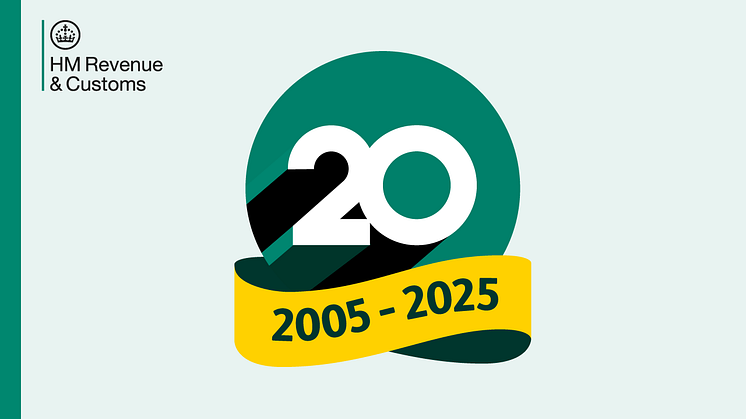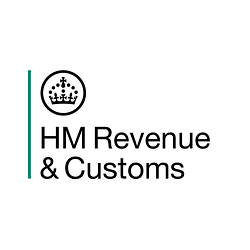
Press release -
HMRC looks to the future as it marks 20 years
- HM Revenue and Customs (HMRC) marks its 20th anniversary on 18 April 2025.
- Two decades on, the department is harnessing the spirit of then Chancellor Gordon Brown’s bold reforms and embarking on a new era of transformation.
- Supporting the government’s Plan for Change and mission for growth, HMRC is now firmly focused on closing the tax gap, modernising and reforming, and improving customer service.
HM Revenue and Customs (HMRC) marks its 20th anniversary on Friday 18 April 2025.
The department was established in April 2005 through the merger of the Inland Revenue and HM Customs and Excise, combining tax administrations to reduce overlap and enhance service delivery.
The creation of HMRC by the then Chancellor of the Exchequer, Gordon Brown, marked a significant reform in public administration, bringing together both direct and indirect tax collection under one organisation.
Two decades later, HMRC is at the heart of the government’s Plan for Change, dedicated to providing the best possible tax and customs service that drives economic growth, and makes working people better off.
HMRC enforces the National Minimum Wage and National Living Wage to make work pay, putting more money in people’s pockets. And in simplifying life for businesses through cutting red tape and improving digital services, it is helping them to grow the economy.
The new Child Benefit online claim service is also helping put money in new parents’ pockets, more quickly and easily, as well as boosting family finances through HMRC’s delivery of Tax-Free Childcare.
As the government works to deliver economic security and growth for working people, a more effective and digitally focused HMRC will be crucial to delivering a more productive and efficient state.
Key Milestones and Improvements
Over the past two decades, the decision to bring tax and customs together has enabled HMRC to undergo a transformative journey, marked by key milestones that have enhanced its operational efficiency.
Today, nearly every Self Assessment tax return is filed online. The top-rated HMRC app has been downloaded more than 7 million times, and our digital services continue to grow - making it easier for everyone to get their tax right and more difficult for evaders to cheat the system.
The introduction of Making Tax Digital (MTD) for VAT in 2019 has evolved customer interactions with the wider tax system, leading to a substantial increase in online VAT returns. And today, MTD for Income Tax Self Assessment is on the verge of being launched, in a move that will both make life easier for small businesses (sole traders) and tackle non-compliance to help close the tax gap.
HMRC has also reduced the number of its offices from more than 500 two decades ago to just 28 today, as it further reduces its office space in central London. The government is building on this journey of efficiency, as well as reinforcing HMRC’s status as a truly national organisation.
Angela MacDonald, HMRC’s Second Permanent Secretary and Deputy Chief Executive, said:
“For 20 years and for centuries before, HMRC and its predecessor organisations have been an integral part of the UK's fabric. With the support of our dedicated tax professionals right across the UK, our impact is far reaching. From tackling complex challenges and catching wrongdoers to implementing a nation-defining program like furlough, our work is pivotal. Day in and day out, whether seen or unseen, in the UK and with international co-operation, we collect the money that funds vital public services and provides financial support to those who need it most.”
As HMRC embarks on the next 20 years, the commitment to sustainability and operational efficiency remains a priority. By adopting new technologies, HMRC is focusing on improving customer service and delivery through further system improvements and faster, more user-friendly digital platforms.
HMRC's journey continues to evolve, benefiting taxpayers, families and the overall efficiency of revenue collection. As HMRC looks to the future, it remains dedicated to providing the best possible tax and customs service, to fully support the UK economy in helping rebuild Britain in a decade of national renewal.
Notes to Editors
- In July 2003 Gordon Brown, Chancellor of the Exchequer, announced a major review of the organisations dealing with tax policy and administration.
- Gus O’Donnell published the O’Donnell Review in March 2004, recommending the revenue departments’ merger into a single new department, but also that responsibility for making ‘strategic’ tax policy should be moved to HM Treasury.
- In his 17 March 2004 Budget, Chancellor Gordon Brown announced the creation of a new department to bring together the functions of HM Customs and Excise and the Inland Revenue, and the transfer of some policy work to HM Treasury.
- Her Majesty Queen Elizabeth II approved the new department’s name, as the HMRC Commissioners exercise functions on behalf of the Crown.
- The name for the new department, and its first executive chairman David Varney, were announced on 9 May 2004.
- The Commissioners for Revenue and Customs Act 2005 received Royal Assent on 7 April 2005. It included provision for the effective governance and operation of the new organisation. The CRCA also enables HMRC to carry on the work undertaken by the Valuation Office Agency of the Inland Revenue.
- The Act established both HMRC and ‘The Revenue and Customs Prosecutions Office’ (RCPO) – work now carried out by the Crown Prosecution Service in England and Wales, The Crown Office and Procurator Fiscal Service (COPFS) in Scotland, and the Public Prosecution Service for Northern Ireland (PPS).
- The new department of HM Revenue and Customs (HMRC) came into being on 18 April 2005.
- A video ‘20 Years of HMRC: Then, Now and Next’ is available on You Tube
- Follow HMRC’s Press Office on X @HMRCpressoffice
Related links
Topics
Categories
Issued by HM Revenue & Customs Press Office
HM Revenue & Customs (HMRC) is the UK’s tax authority.
HMRC is responsible for making sure that the money is available to fund the UK’s public services and for helping families and individuals with targeted financial support.

